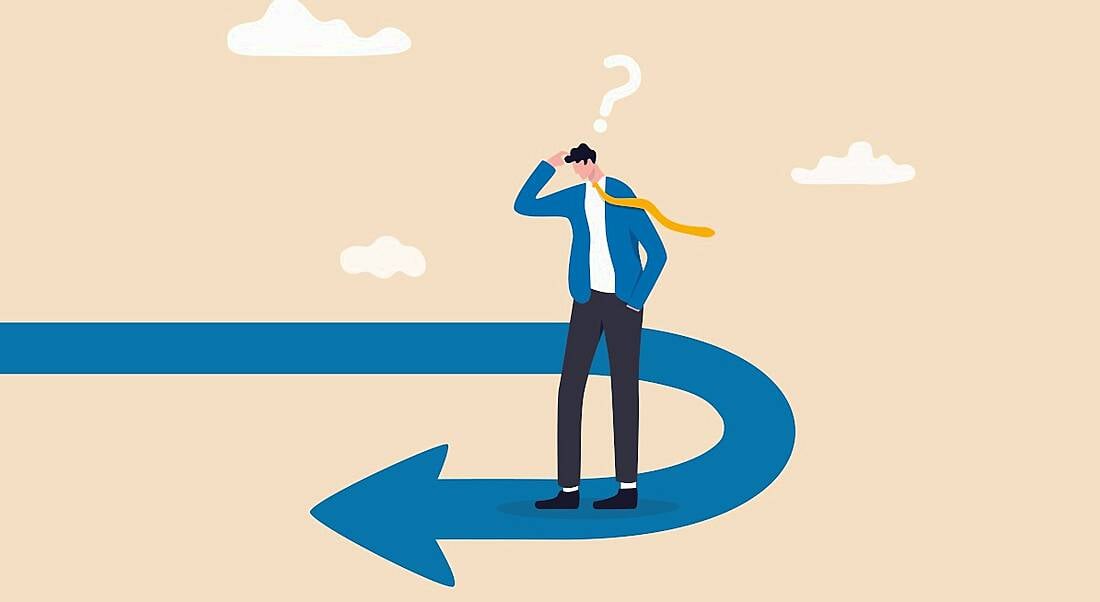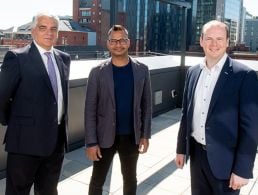Jenny Darmody believes we’re falling back into a hustle culture in work rather than really thinking about what will bring a better working life for all.
The workforce is in a strange place right now. Torn between the fully remote world we were forced into during the pandemic and what the future of work could really look like, employers and employees alike are trying to figure out the best way of working for them.
A lot of the debate is around where employees will work. Some want to be fully remote, some want to be in the office, while some only want to be there on certain days or for certain tasks.
While the ‘when’ and ‘where’ part of how we work will most likely take some time to solve and will depend on each company, department and need of the organisation, how hard we work is another topic being discussed right now.
Last month, Google CEO Sundar Pichai told employees that Google’s productivity “isn’t where it needs to be”. This followed a memo he had sent a few weeks previously, saying that the company needs to be “working with greater urgency, sharper focus, and more hunger than we’ve shown on sunnier days”.
He asked employees to “think about how we can minimise distractions and really raise the bar on both product excellence and productivity”. In short: be more productive.
In fairness to Pichai, this led to him introducing an initiative to crowdsource ideas for quicker product development, so the underlying goal seems to be efficiency. While he’s encouraging Googlers to ‘work smarter’, he stopped short of the ‘not harder’ part of the adage.
Meanwhile, people in Ireland are certainly working harder. According to a recent study by software company Tipalti, we work more hours on average than people in any other country in the top 10 ranked, second only to the US.
But is working harder and longer really the direction we should be going in? The Covid-19 pandemic presented an opportunity to talk about the possibility of reclaiming work-life balance. It showed the global workforce the benefit of spending more time with loved ones, while also highlighting the dangers of not knowing how to switch off and burning out.
Employers have come out in favour of more workplace wellbeing initiatives and giving employees more flexibility and empathy. But is there a danger that, deep down, these same companies expect us to work even harder than before?
A few months ago, I wrote about the anti-work movement, and the bigger conversation it invites around what employers can expect from their employees and vice versa.
Now, there’s another concept that is fighting against the idea of maximum productivity: quiet quitting. This doesn’t involve actually quitting your job, but quitting the habit of going above and beyond and instead only doing the minimum amount of work required.
It’s the idea of stepping away from the ‘hustle culture’, which SparkToro CEO Rand Fiskin spoke about at Future Human earlier this year.
These feelings among the workforce should not be ignored, nor should the lessons from the last two years. Employers can strive for efficient, smarter ways of working, and better ways to free up time, for sure. But they can’t then look to fill that time with even more work so that their employees no longer have time to take a breath.
Flipping the narrative
Parkinson’s Law suggests that “work expands so as to fill the time available for its completion”, meaning if you give yourself two hours to do a job that should only take one hour, it will somehow take you two hours.
We can use this to our advantage, if employers are willing to acknowledge that building breaks, procrastination and downtime into our schedules is vital for employee wellbeing.
Google’s search for ideas that will make its workforce more efficient is not, on the whole, a misguided one. More efficiency can mean less time wasted on duplication of work or mindless and monotonous tasks that don’t benefit the employer or the employee.
But where Pichai loses me a little is the need to “minimise distractions” and “really raise the bar” on productivity. For one thing, I can find plenty of ways of being ‘productive’ without being efficient. It’s the whole idea of ‘busy being busy’.
But, more importantly, distraction can serve its own purpose at work. It lets your brain wander freely, which can lead to more creative thinking. Frequently getting distracted may also be your body telling you that you need to step away from the task you’re working on and either take a break or switch to another task.
Ironically, helping employees to take better breaks, giving them more flexibility and giving them a better work-life balance is likely to yield better productivity. But that wellbeing and flexibility has to be built into the workday, not added on as extra hours.
10 things you need to know direct to your inbox every weekday. Sign up for the Daily Brief, Silicon Republic’s digest of essential sci-tech news.




